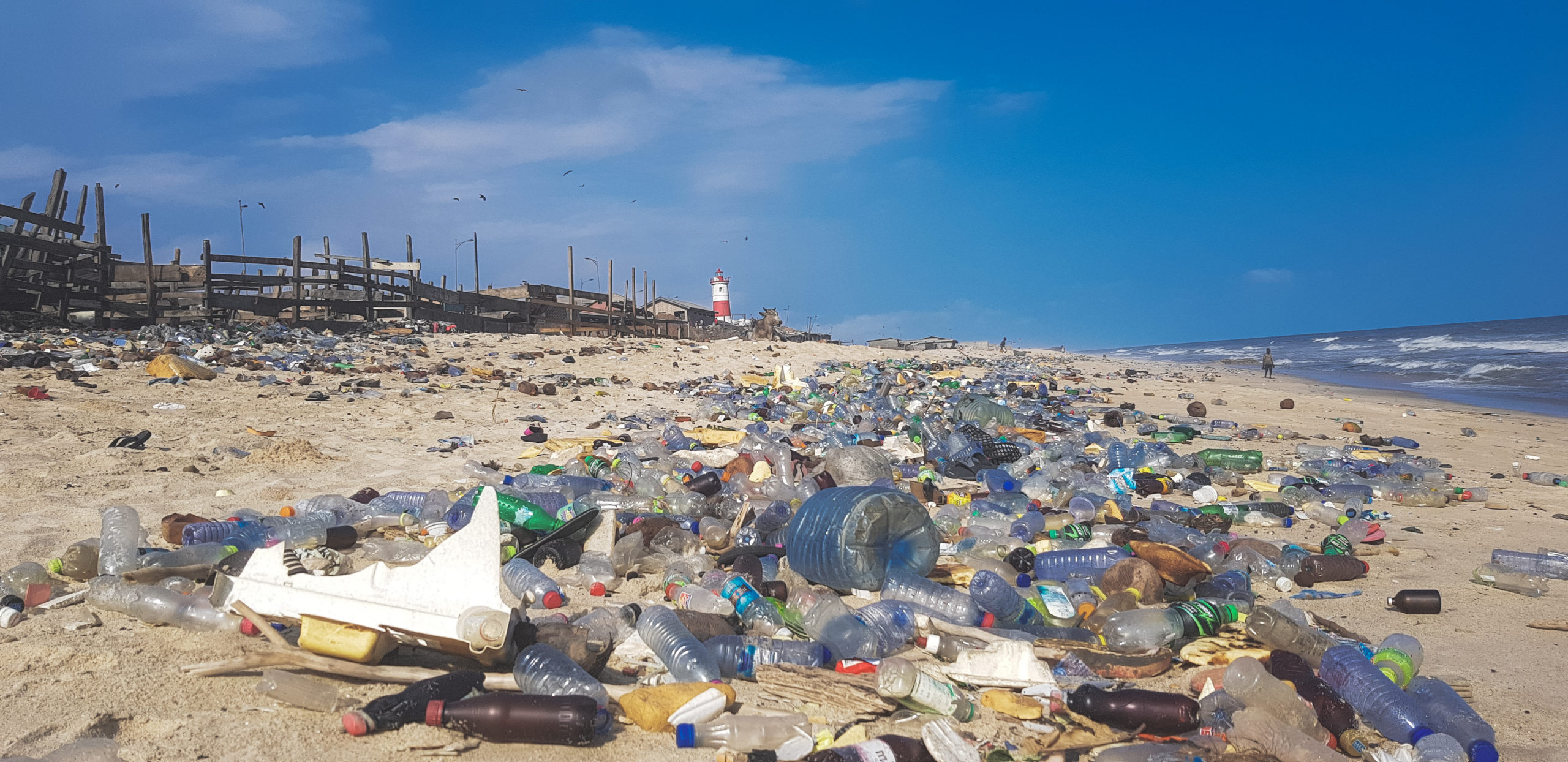
Picture for representational purpose only (Picture Credit: Muntaka Chasant, Plastic Pollution in Ghana, CC BY-SA 4.0)
The Alliance to End Plastic Waste (the Alliance) has announced a strategic partnership with UN-Habitat to implement solutions toward a circular economy, creating business and livelihood opportunities while enhancing resource recovery.
The new partnership, which will kick off with projects in six target cities in Eastern Africa and Southern Asia, will use the UN-Habitat Waste Wise Cities (WWC) Tool to map waste flows and assess potential plastic leakage from waste management systems and identify short- and long-term pathways to increase the amount of plastic waste collected, recycled and recovered.
The program supports the Alliance’s focus on developing meaningful city projects in high plastic waste leakage communities, and the WWC Challenge to clean up and establish sustainable waste management in 20 cities around the world by 2022.
“For the two billion people worldwide that lack access to waste collection, a significant barrier to establishing an effective municipal solid waste program is lack of data,” said Jacob Duer, President and CEO, Alliance to End Plastic Waste. “Through our work with the UN Habitat, we’ll provide city leaders for the first time with a comprehensive understanding of their waste management systems, its gaps and solutions for improvement. We expect the work to have an immediate and lasting positive impact on these six cities and hope to use what we learn to scale the program to more urban communities.”
The participating cities include Nairobi and Mombasa in Kenya; Addis Ababa and Bahir Dar in Ethiopia; Thiruvananthapuram (Kerala) and Mangalore (Karnataka) in India.
At the conclusion of the programme, which will occur over the next ten to twelve months, comprehensive assessments of the waste management practices in the key cities will be executed with the goal to outline solutions to increase the amount of plastic waste collected and recovered. The assessments may suggest feasibility studies for investments in larger plastic waste management infrastructure.
The partnership will also work to engage local stakeholders to ensure appropriate community members and relevant waste chain actors are involved from the onset in order to solve infrastructure gaps and reduce plastic waste leakage in the program cities through an inclusive approach.



